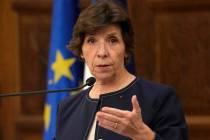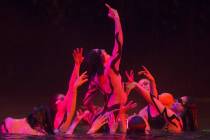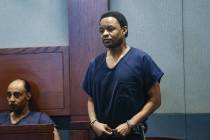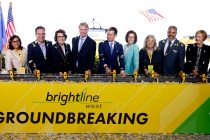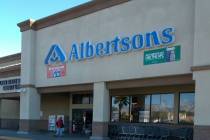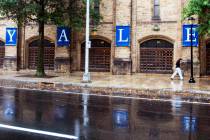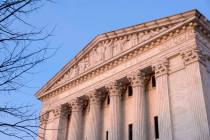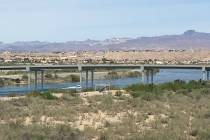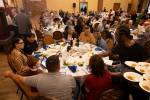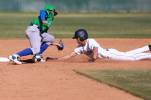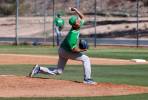Panel works on access policy
CARSON CITY -- Members of a commission considering a policy on civil court records -- when to keep them open to the public and when they should be sealed from view -- struggled Monday with the wording of a seven-page draft proposal.
The draft policy discussed by the Nevada Supreme Court's Commission on Preservation, Access and Sealing of Court Records presumes that civil court records are open unless a compelling case can be made why they should be hidden from public review.
The draft policy would allow anyone, whether a party to the case or not, to request a court record be unsealed.
Anyone objecting to the unsealing would have to make a case to a judge on why the information should be kept confidential.
And before a record could be sealed, a judge would have to make a written finding justifying the action, based on a balancing test of whether closing off access to court information "is justified by identified compelling privacy or safety interests that outweigh the public interest in access to the court record."
Members of the commission discussed everything from which "personal identifiers," such as Social Security numbers, should be protected from view to what documents make up a "court file" covered by the policy.
They also debated how to give the public notice that a judge was considering a proposal to seal a particular court record.
Commission Co-Chairman and Supreme Court Justice James Hardesty said there are potential cases in which a judge would want comment from members of the public or public interest groups before considering a request to seal a record.
One example would be a case on whether a piece of information was a public record, he said. A judge might want some comment from a press representative before making the decision, Hardesty said.
Another troublesome issue was one of the provisions that could be cited as a reason for a record to be closed, defined as the confidential terms of a settlement agreement.
Assembly Judiciary Chairman Bernie Anderson, D-Sparks, a member of the commission, questioned whether that language would encourage more confidential settlement agreements that could result in a public hazard not becoming known to the public.
He questioned whether the language was a "road map" for closing records rather than a way of establishing hurdles to closure.
But Hardesty said the purpose of the language is to ensure that if a judge is a party to a settlement conference, then the weighing test must be made before a record is sealed.
The cases that are settled privately by the parties do not end up as part of a court record and so would not be subject to the court records policy anyway, he said.
Settlement agreements usually deal with an amount of money to be paid, not other elements of a court record, such as an initial complaint, that might shed light on the issues involved in a case.
The wrangling over definitions and other issues showed that while there was consensus on the draft policy Monday, differences remained on some of the details of the language.
Commission members will fine-tune the policy before another meeting this fall.
The commission, made up of judicial officers, press representatives lawmakers and others, was created by the Nevada Supreme Court earlier this year to develop a policy on how to access civil court records.
The Legislature tried but failed to reach agreement on how to establish such a policy in state law, deferring instead to the Supreme Court.
Whatever policy is recommended by the commission, the Supreme Court will hold its own administrative hearing on the matter before adopting the final language to be used by the courts.
Sealing the Case








